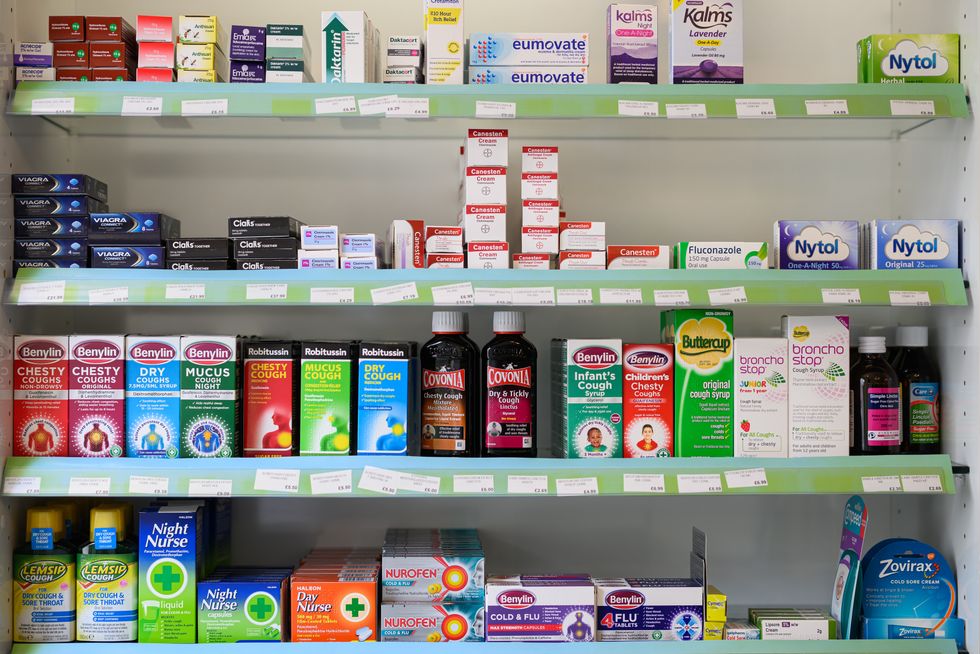Very early in her career working in the over-the-counter (OTC) sector, Michelle Riddalls, saw the benefit of reclassifying medicine can have on patient access to medicine and self-care.
“I started in OTC back in 2001 in the regulatory field and one of the first products I was looking after was Calpol,” Riddalls told Pharmacy Business.
“What I enjoyed about it way back then, and it's still true now, is that you saw the changes that you were helping make in consumer health and widening access to medicines and making a difference to people's lives straight away.”
Riddalls revealed that she only full appreciated her work on the reclassification on Calpol after she had her children.
“Once I had children I was like ‘oh, wow, I was involved in actually switching Calpol bottles to enable you to get them in places like petrol stations’. Until you suddenly need it from a petrol station late at night, you don't fully appreciate the significance of it.”
Riddalls is now the CEO of the Proprietary Association of Great Britain (PAGB), a trade association that represents manufacturers of OTC medicines, medical devices, and food supplements in the UK,
In February, the Department of Health and Social Care (DHSC) published a list of health conditions and categories, where medicines could be reclassified from available only on prescription (POM) to available in pharmacy (P) or over-the-counter to support patients in self-care and improve access to much-needed medications.
Companies are now being encouraged to apply to the Medicines and Healthcare products Regulatory Agency (MHRA) for reclassification of relevant medicines in these areas.
Six broad health conditions have been identified as suitable for medicine reclassification based on international practice and real-world evidence. These include treatments for allergies, pain management, skin problems, digestive disorders, women’s health and oral health.
These conditions were identified following consultation with the Reclassification Alliance’s Conditions and Category Working Group which comprises government representatives, the NHS, clinicians, pharmacists, and industry experts.
Riddalls felt the DHSC’s announcement was significant step in the right direction to renew the UK’s efforts and ambition to remain a world leader in reclassification and self-care.
“To fully unlock the potential of OTCs, we must evaluate the status quo and identify new opportunities presented by advances in digital technologies and innovative ways of working within pharmacies,” she said.
“Widening access to medicines through reclassification forms a key pillar in the work that we are doing to build a sustainable healthcare service fit for the future and realise the full potential of self-care.”
Reclassification of medicine and a greater focus on self-care is in line with the government’s plans to move to community and pharmacy fronted healthcare which empowers patients to treat their self-treatable conditions at home, added Riddalls.
Widening access to medicines by removing prescription-only restrictions on certain medicines can mean patients can access more of the medicines they need in a rapid and convenient way without having to visit their GP. It can also give pharmacists the tools they need to support patients in self-care for common conditions.
It is also estimated a 5% reduction in NHS prescribing levels and spending could save the NHS £1.4 billion annually.
A recent PAGB survey found that 74% of UK adults believe more medicines should be available OTC.
“There is more that can be done to help achieve this, but it is clear that this new announcement could have a very real and positive impact on creating a supportive self-care environment,” said Riddalls.

Riddalls played an instrumental role in the re-establishment of the Reclassification Alliance, in collaboration with the MHRA and DHSC with the first meeting taking place in September 2023.
She chaired the conditions and categories working group, collaborating with key pharmacy and industry bodies to explore suitable categories where medicines could be reclassified
Membership of the working group includes the National Pharmacy Association (NPA), Royal Pharmaceutical Society (RPS), the Company Chemists Association (CCA) and Community Pharmacy England (CPE), with input from chief pharmacists and the MHRA.
“Community pharmacy is completely key to reclassification,” Riddalls said.
“When you're doing these major Pom to P switches and potentially bringing in new actives or new categories, community pharmacy is the place that people go to get it from.”
Alongside her work with reclassification of medicines, Riddalls has been a driving force behind self-care in the UK, helping secure the national self-care policy in 2023.
Riddalls admits that with the change in government last summer, the strategy hasn’t got the traction it needs as of yet but is confident that ministers are on board with implementing self-care plans.
“I don’t think the government want to make any really big decisions until they've had all the input into that 10-Year Health Plan for the NHS but everything's going in the right way in terms of the strategic shifts being talked about - from hospital to community, from treatment to prevention, analogue to digital - our messaging and the work we want to do really feeds into all of that
“My understanding is that things are coming together and the output from the consultation on the 10-Year Health Plan, self-care will form a part of all of that going forward.”
State of the Nation report
In September at the Labour party conference, the PAGB launched its State of the Nation report that explored the current state of self-care and OTC medicines.
It emphasised the need to empower the public to practice self-care and improve access to OTC medicines to alleviate pressure on GPs and reduce NHS costs.
The report outlined 11 recommendations for the government to consider as part of its strategy to build an NHS fit for the future.
It highlighted that each year, at least 25 million GP appointments and five million A&E visits are used for self-treatable illnesses, which can be effectively managed through self-care.

The report suggested that empowering individuals to utilise OTC medicines could save the NHS at least £1.7 billion per year in costs.
Furthermore, it said that eliminating these appointments could save the economy an additional £350m per year, as employees would not need to take time off work for unnecessary treatments.
The PAGB welcomed the government’s manifesto commitments to take pressure off GP surgeries by “improving access to services and treatment through new routes” and to expand the role of pharmacists.
“Community pharmacies already play a great role in supporting patients with self-care,” said Riddalls.
“I know a lot of our member companies provide training, through various sources, to help keep pharmacists up to date on the self-care agenda and their products and what's available.
“I hope the role of pharmacists will hopefully only get bigger with the new emphasis from the government about moving from hospital to pharmacy, but it’s obviously dependent on the right deal being in place to help support all the community pharmacies to do that.
“In our Save the Nation report, we called for community pharmacy to be resourced appropriately to be able to provide services that better equip people with self-care.”
Riddalls reflected on how the Pharmacy First service has shown how pharmacists thrive when they are given more responsibility and has made it more “natural” for patients to ask pharmacists about minor ailments and OTC medicines.
Riddalls observed that although awareness of the benefits of self-care for both consumers and the health service has increased, there is still “significant room for improvement.”
She revealed that PAGB’s focus for 2025 and beyond will be to support the government’s manifesto commitments to ease the pressure off GP surgeries by “improving access to services and treatment through new routes and to expand the role of self-care, with pharmacy playing a pivotal role here”.
“Fixing the “broken” NHS – is essential for the future of our health and wellness as a nation and that’s why widening access to OTC medicines and empowering people to self-care are a priority and the key to the success of the 10-year healthcare plan the government is rolling out,” she added.












